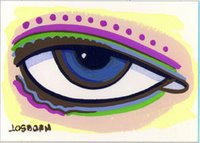I was just reading the issue of Hogan’s Alley that I purchased a few weeks ago. In it is an article about sheet music and how comic characters were used to sell sheet music. This music was from way back in the 1850s or so through the 1930s. This got me thinking about music and how we listen to it.
In today’s world you would have a hard time escaping music. Turn on the TV and you’ll hear music in every show and commercial. Walk into a store and you will hear music playing over the store’s sound system. Go to the movies and there is music throughout. Just walking down the street you can hear music coming from passing cars. We take music for granted and our minds frequently even have to tune it out.
Recorded music changed our relationship with music entirely. If I want to hear a song, any song, I just have to turn on the radio to hear lots of music. For free. The price of a radio is cheap too. Nearly everybody in the industrialized world can hear music whenever they want. You can collect recorded songs and build a library so big that you’ll never even have time listen to it all. Our world is bursting with music.
But there was once a world where all music was live. That is where sheet music comes in. Today when you say that you own a song it means that you bought the CD or the MP3. Back before recorded music when you said you owned a song it meant that you purchased the sheet music. All those strange musical symbols on the page gave you instructions on how to make the song. Songs were “do it yourself” and the sheet music was the song.
Our whole concept of the physical manifestation of what a song is has changed. If someone was to ask you in 1889 if you had the song “Sweet Longtime” and you said yes then you’d hand him sheet music. Same question today and you’d hand over a CD or MP3.
How we listened to songs has changed a lot too. Not as in going to a performance; seeing a live band in 1848 is much like seeing one today. But in everyday listening to music. I imagine if I wanted to hear a song in 1901 I would have to go to a friend’s house who knew how to play music and ask him to play. I bet there were people who collected the latest songs and played them for their friends but I wonder if there were also people who bought sheet music just to bring to a friend and hear him play it. If I wanted to hear the latest song, and did not play music, would I be expected to purchase that song and bring it to the party? The lost etiquette of sheet music. Well, maybe someone still knows but not me.
I also wonder if more people played music back then. In the movies set in that time kids were always taking piano lessons. According to the article I was reading the piano was the instrument of choice. But how many pianos were there really? Was music making and sheet music mostly for the well off? All that old country and folk music that came out of the hills and valleys of this nation wasn’t written down as sheet music but handed down from fiddler to fiddler. Someone had to teach you a song in those parts.
I don’t know how much sheet music is sold today. Most people I know who make music play some form of pop/rock. Many of them learn by listening. You can play a recording over and over until you learn exactly how it was made. Sheet music doesn’t seem to be as necessary as it once was. Plus most people just play the stereo at a party. Someone playing live music at a gathering is rare. I wonder if there are more or less everyday musicians who entertain their friends with a song? These are the questions that sheet music brings to mind.

Discussion ¬